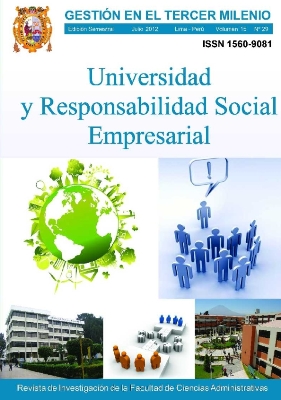LAS ORDENANZAS EN GOBIERNOS LOCALES RESIDENCIALES SOBRE EL COMERCIO AMBULATORIO, SE CONSTITUYEN EN NORMA LEGAL EXCLUYENTE QUE COADYUVA A LA GENERACIÓN DE POBREZA, PUDIENDO APROVECHARSE COMO INCLUSIVA POR ASOCIATIVIDAD.
DOI:
https://doi.org/10.15381/gtm.v15i29.8775Keywords:
Inclusion, Exclusion, associativity, mothers living in poverty, residential districts.Abstract
In our national democratic system every district of our country enjoys political autonomy, economic, social, cultural and technological, but we can see that, in the aspect of economic power in the City Council District, will have exclusive municipal ordinances such as the ban street vending, thus wasting opportunities organized to contribute to the fight against poverty, and this is a national problem that we all face. These ordinances alienate certain vulnerable groups of beneficial economic potential market area in which these vulnerable groups properly organized with guidance and support of local residential, can meet a variety of needs entrepreneurially residential markets, which everyone can benefit, ie state, vulnerable groups and the residential market.Downloads
Published
Issue
Section
License
Copyright (c) 2012 Juan Manuel Barreda Guerra

This work is licensed under a Creative Commons Attribution-NonCommercial-ShareAlike 4.0 International License.
THE AUTHORS RETAIN THEIR RIGHTS:
(a) The authors retain their trademark and patent rights, and also over any process or procedure described in the article.
(b) The authors retain the right to share, copy, distribute, execute and publicly communicate the article published in Gestión en el Tercer Milenio journal (for example, place it in an institutional repository or publish it in a book), with acknowledgment of its initial publication in the Gestión en el Tercer Milenio.
(c) Authors retain the right to make a subsequent publication of their work, to use the article or any part of it (for example: a compilation of their work, lecture notes, thesis, or for a book), provided that they indicate the source. of publication (authors of the work, magazine, volume, number and date).













